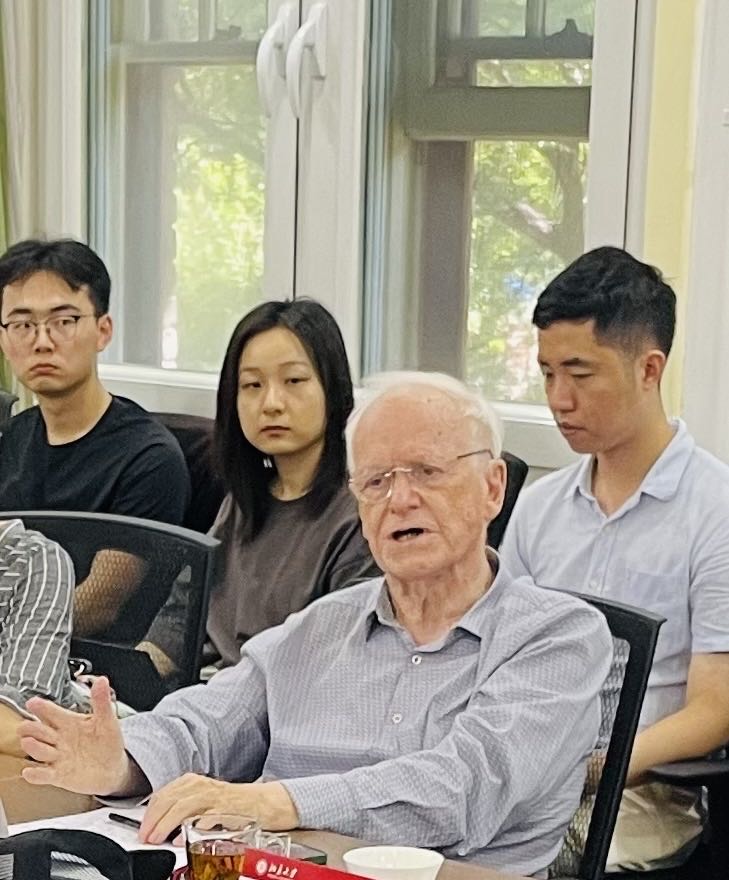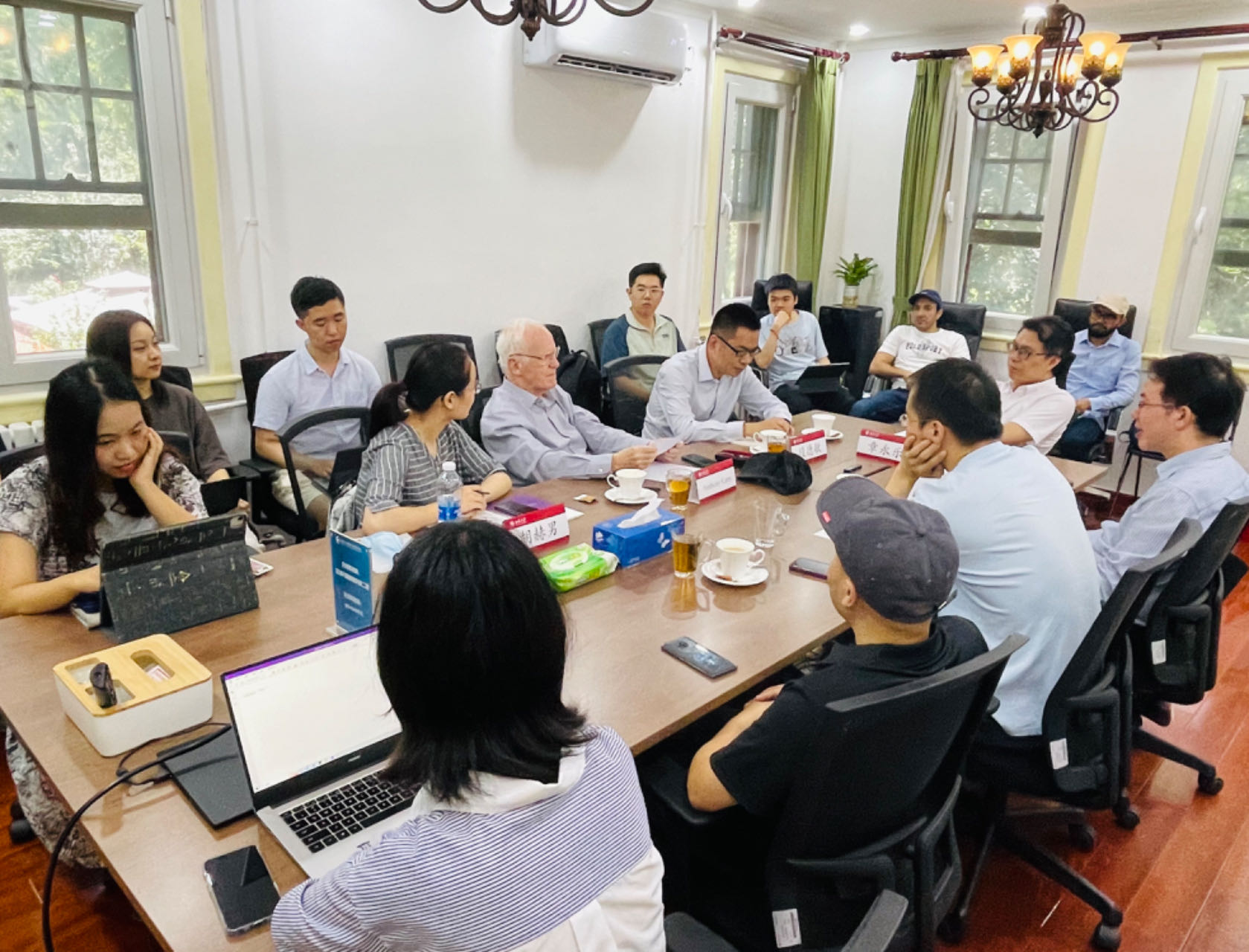The 4th lecture of the “Adventus Amicorum” salon series was held on July 25, 2023, by the Institute of Area Studies, Peking University (PKUIAS) at Building No. 66, Yannanyuan, during which Prof. Anthony Carty, Editor-in-Chief of the Oxford Online Bibliography of International Law and a senior scholar in the field of international law theory and history of Chinese international law, shared his thoughts on the topic, “How much strategic autonomy does Europe have?” The lecture was hosted by Zhang Yongle, deputy director of PKUIAS, with the participation of Kong Yuan, associate research fellow of the Institute of European Studies of the Chinese Academy of Social Sciences (CASS), and Duan Demin, director of Center for European Studies of Peking University, and others.
Prof. Carty started from the continuous and intense Russia-Ukraine conflict, advocating that Russia was an important part of Europe, and its culture, an important branch of European culture. Therefore, the strategic autonomy of Europe could not be attained without the participation of Russia. However, the EU has been increasingly identifying itself against Russia in ideological terms. This is essentially satisfying the US’s strategic need to confront Russia, rather than the EU’s need for strategic autonomy.

Prof. Carty went on to point out that in the EU, “European consciousness” was being replaced by “Western consciousness” led by the US. Per Carty, the European middle class is absorbed with issues of identity politics, and has turned a deaf ear to serious talk on Europe’s strategic autonomy. The political and even academic discussions in Europe on international affairs are now filled with ideological discourse, while insightful international perspectives and principles of international law are often left behind. As an example, Prof. Carty focused on the EU’s academic and public opinions on China.
Prof. Carty previewed the future of European strategic autonomy from the perspective of constitutional law and internal aspects. He expressed his view that current party politics patterns under the respective constitutional frameworks of France and Germany has made it impossible to create a strong leadership for European strategic autonomy. France is facing a severe governance crisis because of a “democratic deficit”, while Germany cannot form a government with clear goals and a strong executive power due to disputes between the parties within the ruling coalition.
Prof. Carty opined that the strategic autonomy of EU did not lie in ideological prejudice but, on the contrary, depended on closer cooperation and communication with non-Western developing countries, such as China. He then further analyzed the potentials of this strategic autonomy.

During the discussion, Prof. Duan shared his own experience and in-depth thought on the increasing influence of ideology on the EU’s foreign policies. Prof. Kong called on Chinese and European scholars to strengthen academic exchanges, and expressed his hope that more European scholars would come to see the real China. Prof. Carty also strongly agreed. The lecture ended in a lively discussion.


